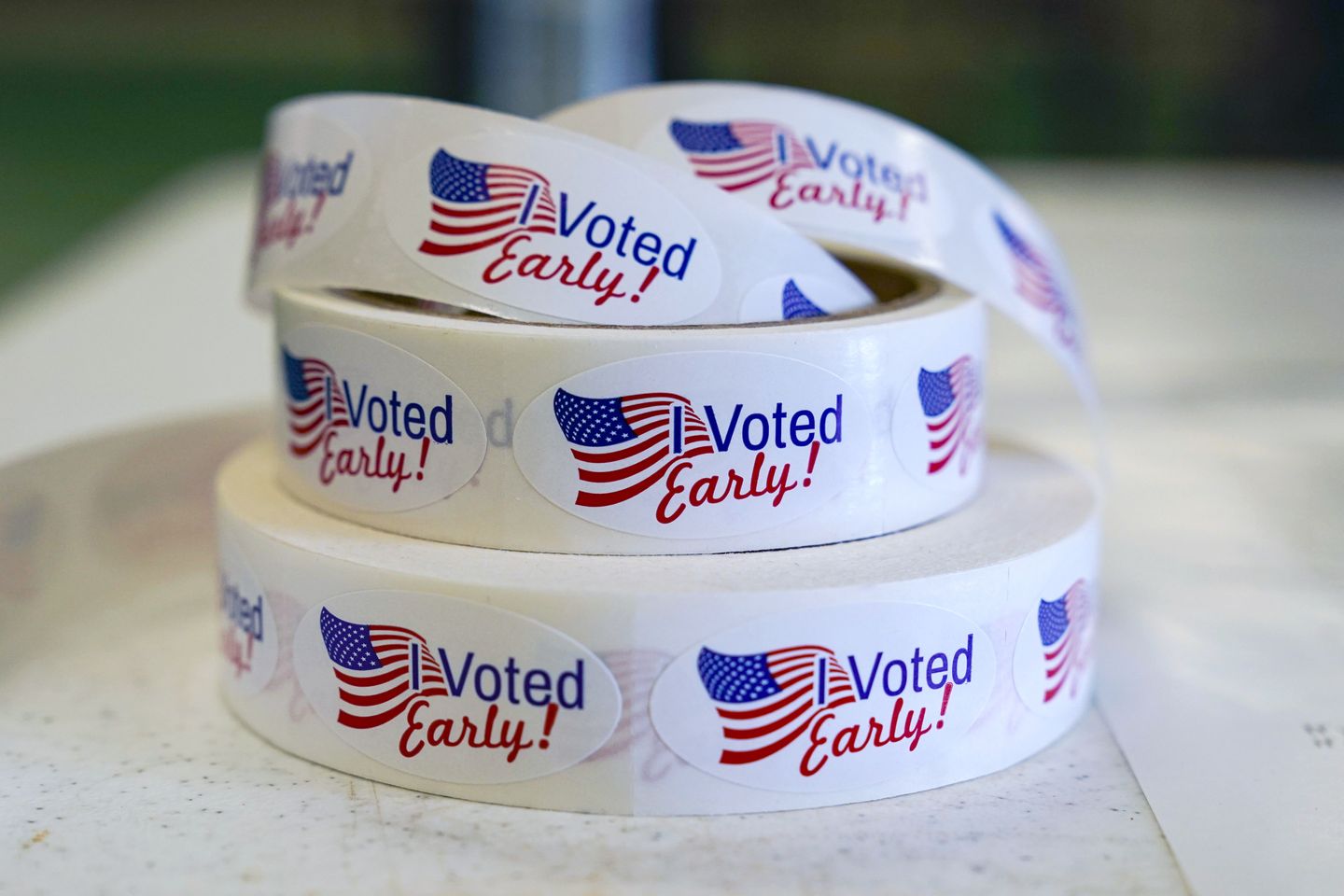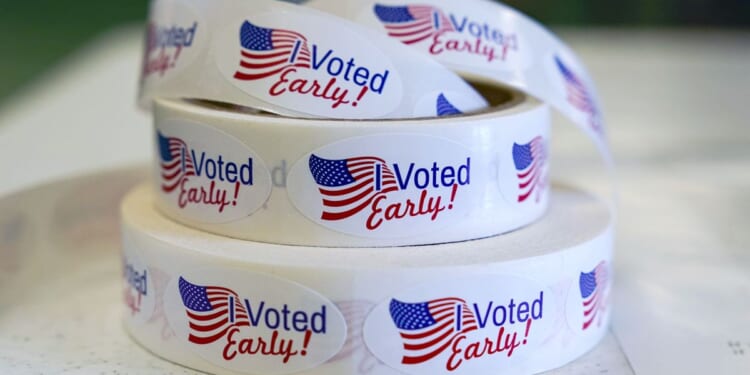
A Delaware judge struck down the state’s expansive early voting law, saying Election Day is a single day and allowing people to vote on other days violates the state constitution.
Superior Court Judge Mark H. Conner said absentee voting is allowed in limited circumstances laid out in the constitution, but the state had gone far beyond that in allowing anyone to cast a ballot up to 10 days before Election Day.
“By granting indefinite absentee voting to those who are unable to vote in a single election, Delaware’s Permanent Absentee Voting Statute impermissibly extends beyond the limited authority granted to the General Assembly by our Constitution,” Judge Conner wrote in a decision issued Friday.
He said the law was “likely well intentioned,” but he had no choice under the law.
He also struck down the state’s permanent absentee balloting, saying that while the constitution allows for someone to vote absentee in a particular election, it does not allow for someone to automatically receive absentee ballots in perpetuity.
“This decision is not made lightly, and it should be noted that the spirit and goals of the challenged legislation are not what are being ruled on today,” the judge said.
The state had argued that the concept of Election Day shouldn’t be taken literally. Rather, it was a series of events that could take place over time leading to the selection of a winner, state Deputy Attorney General Zi-Xiang Shen said.
As long as the last day in the chain of events was Election Day, the state said it was on solid ground.
Judge Conner said that was impossible to square with the actual words of the constitution, which fixes elections every other year “on the Tuesday next after the first Monday in the month of November.”
“The word ‘shall’ commands the general election be held on that specific day enumerated in the text,” the judge wrote. “Our Constitution provides only one such day, not any day or series of days the General Assembly sees fit.”
Delaware had pointed to a section of the state constitution that said the Legislature has the power to craft laws that make elections more secure and improve ballot secrecy.
But Judge Conner said there was no evidence extending the election over multiple days achieve those goals.
The Washington Times has reached out to the state attorney general’s office.
The Public Interest Legal Foundation, which represented one of the plaintiffs, cheered the ruling.
“States cannot pass election laws that conflict with their state constitution. This decision is a win for the rule of law,” said PILF President J. Christian Adams.
Two years ago PILF also was part of a lawsuit challenging Delaware’s universal vote-by-mail and same-day registration policies. The state Supreme Court ruled both of those practices were unconstitutional.












